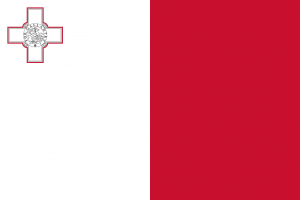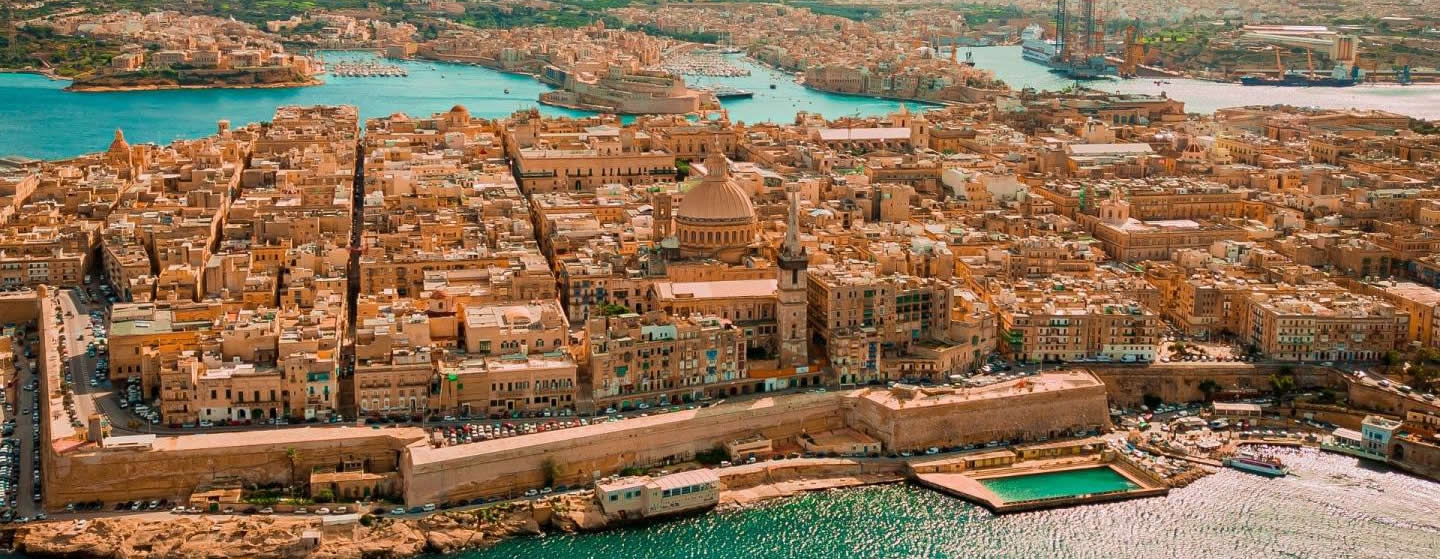Language/Maltese/Culture/Malta-Timeline
Jump to navigation
Jump to search
Rate this lesson:
Historical Timeline for Malta - A chronology of key events
Malta Timeline[edit | edit source]
| Date | Event |
|---|---|
The origins[edit | edit source] | |
| 5200 BC | settlement of the island by farmers and fishermen from Sicily, existence of the first megalithic temples. |
| 2500 BC | the first fortified villages appear. |
| 800 BC | invasion of the Phoenicians. |
| 600 BC | the island passes into the hands of the Carthaginians. |
| 218 BC | the Romans colonize the island which becomes a strategic point for the domination of the Mediterranean. |
| 60 AD | Saint Paul, on his way to Rome, is shipwrecked in Malta. He stayed there for a few months and converted the inhabitants to Christianity. |
| 870 | invasion of the Arabs. The Maltese are converts to Islam, but tolerate Christian practice. |
| 1090 | Roger I, Count of Sicily, seizes the island. |
| From 1240 to 1250 | the Germanic emperor Frederick II drives out the Arabs and the population becomes again predominantly Christian. |
| From 1266 to 1282 | Charles d'Anjou ruled Malta. |
Order of Malta[edit | edit source] | |
| 1530 | concession of the island, by Charles Quint, to the order of Saint-Jean-de-Jerusalem. |
| May 19, 1565 | Mustapha Pasha arrives with 40,000 Turks. It is the beginning of the Great Siege. The Maltese forces are very inferior. |
| September 13, 1565 | thanks to Sicilian reinforcements, the Maltese force the Turks, exhausted, to re-embark. It is one of the greatest victories of Christendom over the Ottoman Empire. |
| 1675 and 1676 | plague epidemic which claimed more than 11,000 victims out of 60,000 inhabitants. |
| 1680 | from this date, the Spanish influence decreases in favor of that of France which sends most of the knights. |
| 1798 | Napoleon Bonaparte seizes the island during his trip to Egypt. It is the end of 268 years of domination by the Order. The Knights must leave the island. |
English domination[edit | edit source] | |
| 1800 | faced with the looting of the island by the Napoleonic troops, the Maltese appeal to the British. |
| 1802 | the Treaty of Amiens between France and England agrees that Malta will be returned to the Order. The national congress is opposed to it. |
| 1816 | Malta becomes a colony of the British Empire, a naval base in the Mediterranean. |
| 1869 | with the opening of the Suez Canal, the island becomes an obligatory passage for boats connecting the West to the East. |
| 1887 | creation of a Legislative Council of which the Maltese are part for the first time, but with limited powers. |
| 1919 | the Constitution proclaims an autonomous state with proportional representation. The English keep defense and foreign policy. |
| 1930 | the Constitution is suspended. |
| June 1940 | Malta, which occupies a strategic position, is bombarded for three weeks by the Germans and the Italians. |
| From January 1941 to April 1942 | massive German bombings. The Maltese continue to resist. |
| April 15, 1942 | King George VI of England awards Malta the George Cross for his heroism. This cross now appears on the Maltese flag. |
Towards independence[edit | edit source] | |
| 1947 | the Maltese autonomous government is restored, the right to vote is granted to women. |
| September 21, 1964 | the "yes" wins overwhelmingly in the referendum on the Constitution of Independence. Malta remains integrated into the Commonwealth, however, and British forces remain in Malta. Malta becomes a member of the United Nations. |
| 1965 | Malta becomes a member of the Council of Europe. |
| December 13, 1974 | proclamation of the Republic. |
| 1977 | the first phase of economic adjustment and modernization is launched so that the country can claim entry into the European Community. |
| March 31, 1979 | the last British soldiers leave the island. |
| 1990 | first application for membership of the European Community. But this request was frozen for several years. |
| 1998 | the Nationalist Party, pro-European, returns to power. On September 10, Malta's application for membership is reactivated. |
| March 8, 2003 | decision to join the European Union by referendum after a lively debate between Nationalist (pro-European) and Labor (against) parties. |
| April 12, 2003 | victory of the Nationalist Party and re-appointment of Doctor Adami as head of government. |
| March 29, 2004 | Edward Fenech Adami is elected President of the Republic to replace Guido De Marco. He was replaced as Prime Minister, which he had held for 14 years, by Lawrence Gonzi. |
| May 1, 2004 | Malta celebrates its official entry into the European Union. |
| December 21, 2007 | Malta joins the Schengen area. |
| January 1, 2008 | Malta joins the euro zone. |
| April 4, 2009 | Labor George Abela becomes the 8th President of the Republic. |
| Apr 17, 2010 | Pope Benedict XVI travels to Valletta, to the Palace of the Grand Masters of the Order of Malta, and meets President Abela. |
| March 2013 | historic victory for the left (Labor Party) led by Joseph Muscat, new Prime Minister. |
| April 2014 | election of the Minister of Social Solidarity and Family, Marie-Louise Coleiro Preca, (Labor Party) as President of the country. |
| November 11-12, 2015 | Valletta summit on migration bringing together at the Mediterranean Conference Center (MCC) many European and African heads of state including François Hollande, forced to return to France following the tragic events in Paris, and Ban Ki-Moon for the UN. |
| March 28, 2016 | 450th anniversary of the arrival of the Knights of the Order of Saint John in Valletta, March 28, 1566. |
| June 2016 | creation of the Democratic Party with Marlène Farrugia at its head, in a country marked by bipartisanship. Responding to the call of the population for a need for renewal of the political class. |
| January-June 2017 | Malta chairs the Council of the European Union for the first time in its history. The next presidency will not take place before 2030 ... |
| June 3, 2017 | the early parliamentary elections give victory to the Labor Party of Joseph Muscat who is re-elected as Prime Minister. |
| October 16, 2017 | murder of blogger and journalist Daphne Caruana Galicia, who died in the explosion of her car. Thousands of Maltese demonstrate on October 22 to demand the truth about this death and the corruption cases that mark the news on the island. |
| 2018 | Valletta is the capital of European culture for one year. |
| August 15, 2018 | after refusing to dock the Aquarius (600 migrants) in June 2018, the Maltese navy receives 114 migrants from the second Aquarius following a European agreement with 5 other countries |
Source[edit | edit source]
World Timelines[edit source]


